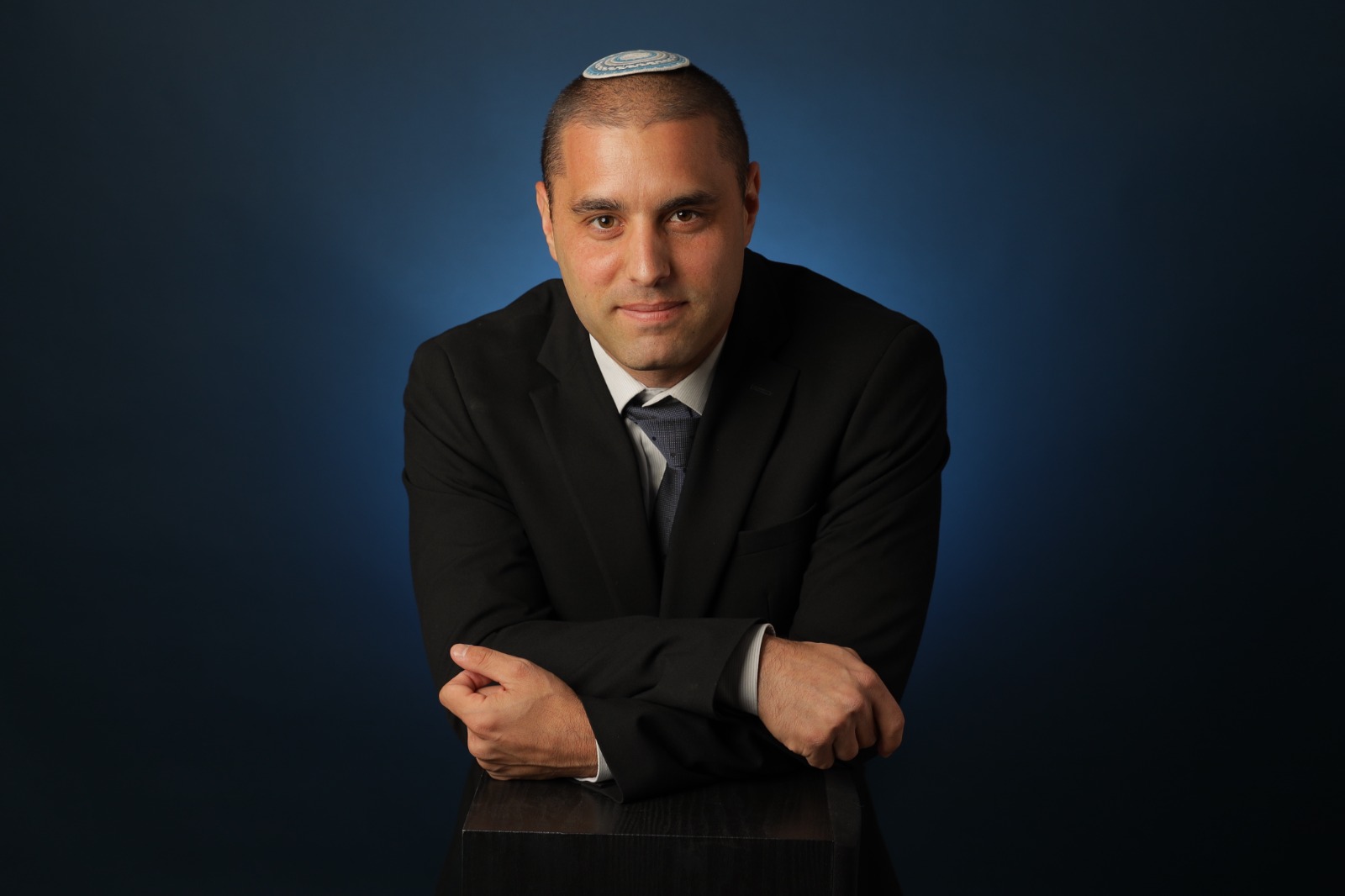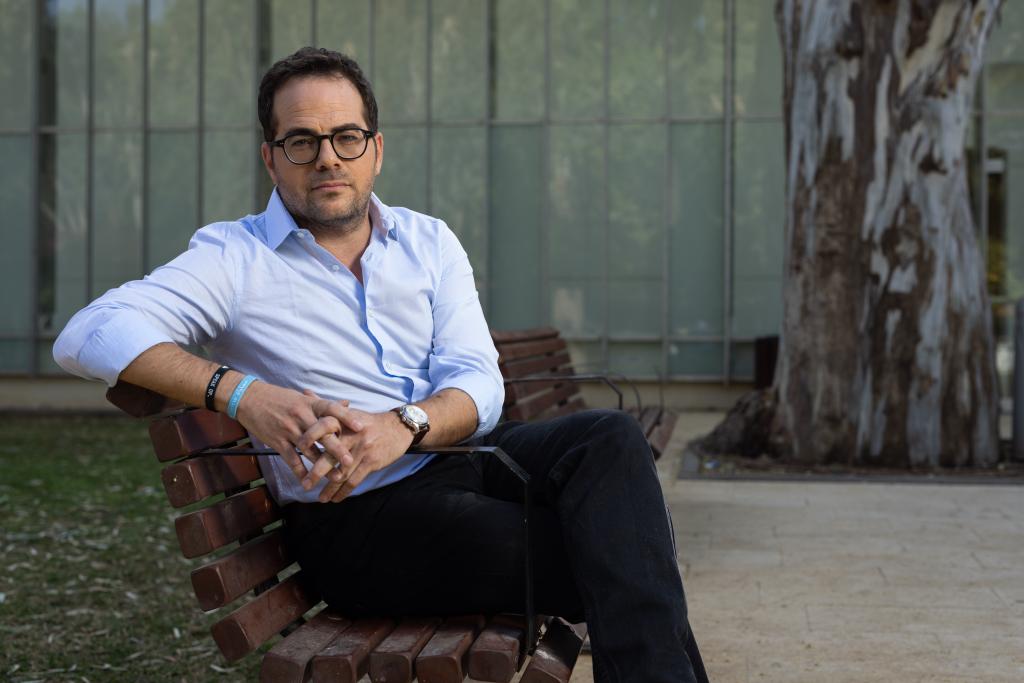Compromise Negotiations Continue as Fate of Israel’s Judicial System Hangs in Balance
After the extensive public uproar, it appears that the original version of the reform is off the table, experts say
Israel is still reeling from a deep political crisis that began earlier this year when the government announced its intention to implement sweeping judicial reforms.
Demonstrations against the government continued Saturday night, as an estimated 150,000 protesters gathered in Tel Aviv, and another 250,000 in cities and towns across the country. The protests were held even though negotiations between the opposition and the coalition are being held to find a compromise.
Apart from mutual reports of goodwill between the sides, there have not been many reports of substantial progress during the talks.
The coalition claims the judicial overhaul is needed to make Israel more democratic. It says the Supreme Court has accumulated too much power and often intervenes where it should not.
Critics say the reforms will significantly weaken Israeli democracy. They also believe the move is personally motivated by Israeli Prime Minister Binyamin Netanyahu, who is on trial for several corruption charges.
Caving to widespread criticism and warnings of major economic and security instability, Netanyahu agreed to delay the legislation and enter negotiations under the auspices of President Isaac Herzog. The talks began late last month and, according to statements from Herzog’s office, the atmosphere in several meetings was “positive.”
The representatives of the coalition include Ron Dermer, the strategic affairs minister; Yossi Fuchs, who serves as the government secretary; Professor Talia Einhorn, a conservative legal expert, and Dr. Aviad Bakshi, a leading figure at the Kohelet Policy Forum, a conservative think tank.
“I’m not sure the coalition representatives are the right people to reach a political compromise,” according to attorney Ze’ev Lev, legal counsel for the Movement for Governability and Democracy, who points out the dominance of professional figures representing the Netanyahu government.

Attorney Ze’ev Lev. (Lior Yado)
“The fate of the reform is now almost a purely political question,” he added. “The professional differences are far less relevant at this point.”
Justice Minister Yariv Levin, who spearheaded the reform, has been excluded from the compromise negotiations. Parliament member and member of the Religious Zionism party Simcha Rothman is also not on the team. Rothman leads the Knesset Constitution, Law and Justice Committee, which oversees all legislation and is considered one of the leading figures pushing the reforms.
Dermer is considered especially close to Netanyahu. He seldom makes public appearances in front of local audiences in Israel, focusing his media presence on international media outlets and giving interviews on the Israeli-Arab conflict. He has made little to no public statements regarding his stance on the judicial reform.
Representing the opposition are a group of Knesset members from the Yesh Atid and National Unity parties. On Sunday, Merav Michaeli, head of the Labor party, announced that her party was withdrawing from the talks, calling them “fake” and disingenuous.
“It is no secret that from the beginning we joined the movement neither wholeheartedly nor with great faith, but with one central goal—to make sure that Israeli democracy is not put up for sale,” Michaeli tweeted. She called on the other parties to join her, claiming there are parallel secret negotiations going on in which agreements are being reached.
Representatives of both sides were chosen by the political parties. On the sidelines of the talks are experts from both sides offering their professional input on the different matters.
The dialogue between politicians and legal experts may suggest a gap that will be difficult to bridge.
This holiday season, give to:
Truth and understanding
The Media Line's intrepid correspondents are in Israel, Gaza, Lebanon, Syria and Pakistan providing first-person reporting.
They all said they cover it.
We see it.
We report with just one agenda: the truth.


The absence of the ultra-Orthodox parties, staunch allies of Netanyahu, is notable. They have a vested interest in the reforms, which would enable them to secure many rights and privileges that are currently subject to judicial review and much public scrutiny.
After the extensive public uproar, it appears that the original version of the reform is off the table.
According to Lev, the chances for the full reform to pass are very slim.
The reform that was proposed is dead, but there will be some sort of reform
Professor Yaniv Roznai, vice dean of the Harry Radzyner Law School and co-director of the Rubinstein Center for Constitutional Challenges at Reichman University, has sat in on the negotiations as an expert for the opposition. He shares the same assessment.

Prof. Yaniv Roznai (Gilad Kavalerchik)
“The reform that was proposed is dead, but there will be some sort of reform,” he said.
Still, since the beginning of the talks, members of the coalition have repeatedly threatened that the legislation can be immediately resumed once the parliament, the Knesset, comes back in session at the end of this month. Several laws in the pipeline could be easily moved to the top of the agenda.
“This is kind of a loaded gun on the table,” Roznai told The Media Line. “Any discussion needs to guarantee that the laws already in the pipeline will not be advanced and any final solution needs to include an announcement that no other legislation regarding the judiciary will be brought forward.”
According to reports, the first issue being discussed is the selection process for judges.
Originally, the government wanted to give the ruling coalition a majority by changing the composition of the current nine-member committee, which has no automatic majority for either politicians or judges.
The current government claims that the makeup of the Supreme Court reflects a members-only club of predominantly males of European descent, part of the country’s intellectual elite. It has been criticized for underrepresenting the many factions of Israeli society. Their aim is to diversify the identities of the judges.
“This is the heart of the reform,” said Lev. The law that changes the selection committee has already passed preliminary readings at the Knesset and can be brought to a final vote as soon as the plenum convenes for its summer session in two weeks.
“The coalition has lost confidence and will likely not continue with the legislation that has already begun,” according to Lev. “But, if only this passes and the other parts don’t, this will be an achievement that will kick-start a very gradual change in the judicial system.”
Such a move would likely provide more fuel for the demonstrations.
“If there is no willingness to compromise on core issues such as the judge’s selection committee, this will show there is no real willingness to compromise,” said Roznai. “Any right that is guaranteed or even legislated is meaningless if the judges are captured by the government and the court is controlled by politicians. Only if the judiciary will retain its independence, there will be a possibility for compromise.”
A current proposal reportedly being discussed has politicians and judges each appointing proxies as their representatives on the committee. It is unclear how this would work or whether there is an agreement on this somewhat quirky format that leaves neither side satisfied.
The heated political debate that has engulfed Israel in the past months has been unprecedented in the country’s short 75-year history. It has accentuated the many rifts that characterize Israeli society, further polarizing it.
The coalition has criticized demonstrators, saying their main goal is to topple the Netanyahu government even if it relents on the proposed reforms.
Netanyahu’s legislation freeze has not stopped the protests, a testament to the lack of faith between the sides, but also lending some truth to those claims by the coalition.
“The government has made some moves that will be very difficult to reverse. It has exposed its plans and therefore the demands are not only to soften or stop the reform, but a demand for better protection of rights,” said Roznai. “We need to see how to strengthen democracy and not weaken our checks and balances; this has to be part of the deal.”
Scenes of hundreds of thousands of Israelis taking to the streets and threats of dissent among military reservists will not be deleted from the collective national memory so quickly, if at all.
They may also change the way Israelis take part in the political process.
“There are things that cannot be undone,” said Lev. “We saw a high level of civilian involvement on both sides; people had an eye-opening experience and there is a sudden thirst for information.”
If nothing happens, no compromise and no reform, we will see a second round of this struggle that will be even more extreme within the coming years
The change is profound and the reform, even the talk of it, will not die quietly.
“If nothing happens, no compromise and no reform, we will see a second round of this struggle that will be even more extreme within the coming years,” Lev added.
The political survival of the government also depends on the outcome of the negotiations. Elements in the coalition may not be able to live with a compromise and resign. Should the talks be drawn out, they will likely be impacted by political developments.
Israel will bear the scars of the deep political divide for years to come, experts predict.
As negotiations continue, progress is murky. When the Knesset resumes at the end of April, the intention of the coalition could become clear and hint at the direction in which Israel is heading.

